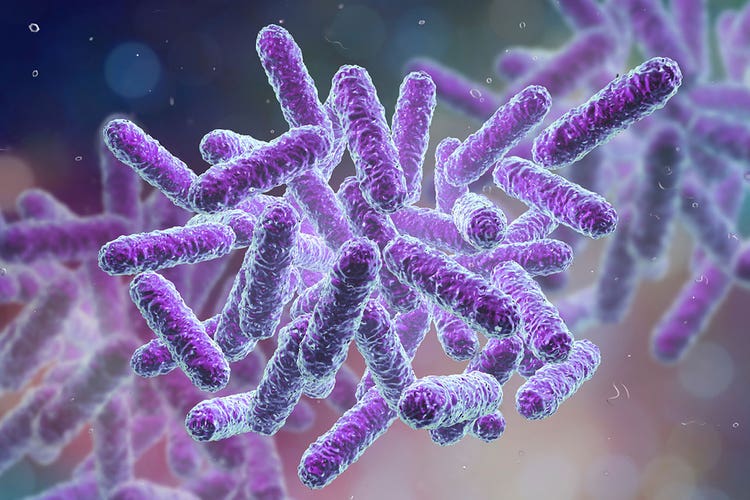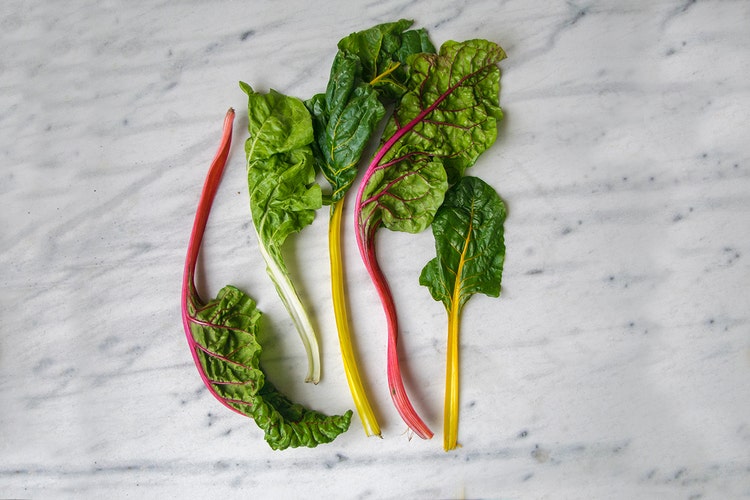Go With Your Gut

I’m a big believer in food as fuel. I pay attention to macros, and I do supplement when I know that I am—or I’m going to be—short on particular nutrients that my body needs. What I take in does not always look appetizing (my infamous “green sludge” smoothie), and it’s not always something that others would like to share. (It’s called green sludge for a reason.)
During the holidays, however, I recognize that our meals feed more than our bodies. It’s a time for nourishing relationships, and we prepare and serve foods with the intention of pleasing everybody. And literally, every body: Our Thanksgiving table often divides between the carnivores and the plant-based eaters. It got me thinking about the food choices we make and how food makes us feel physically, and more.
Gut health (specifically the population of healthy microbes that help with digestion) and the brain-gut connection have generated a lot of attention in recent years. Some experts espouse the elimination of grain from our diets, others promote consumption of more healthy fats and still others promote entirely plant-based diets.
But I know how I feel when I skip the green stuff and how I feel when I eat a grass-fed steak—and it’s not the same way my wife or my kids feel when they eat the same foods that I do. As I prepared to try out fermented foods for November’s “Try This!” challenge, I came across intriguing research pointing to the possibility that probiotic supplements might have unintended consequences, from growing too much of a good thing to having no effect at all.
Don’t eat your spinach, or almonds … or sweet potatoes

I also learned that some of the foods we’re told are good for us might not be so good for everyone. In fact, several foods that are staples of clean eating and popular diets are high in oxalate, a chemical that can combine with calcium and, for certain people, contribute to kidney stones. Foods that have long been considered universally beneficial, such as spinach, almonds, sweet potatoes and raspberries, all have higher concentrations of oxalate.
Then there are food sensitivities. You might feel fine after a bowl of ice cream, but your partner is up half the night. Or you might not have noticed that you always feel stiff or achy the day after loading up on garlic fries or pasta with marinara (nightshades can do that). These are not full-blown, life-threatening food allergies that involve multiple systems and can lead to anaphylaxis. But food sensitivity because of the presence of a trigger (like sulfites or gluten) or the absence of something (like a digestive enzyme) can knock one of your systems out of line—often your gastrointestinal system, and sometimes your skin, joints or lungs.
Changes in your gut biome are believed to have some role in fairly devastating gut conditions such as Crohn’s disease, in which the presence of an enzyme is believed to alter the gut’s bacterial population. Several companies will map your gut biome to help you understand your gut health and response. So I decided to try one and see what I could confirm—or learn—about how my body reacts to what I put into it.
The experience

I chose the Viome testing kit, which promises to show me not only what microbes make up my gut biome but also what foods those bugs like. I’ll find out if I should be consuming more of anything in particular that I already eat, what I should try adding and what I should avoid. And I’ll learn whether those changes will have an obvious impact on my energy and overall health, or just give me peace of mind that I’m doing all I can to keep an important part of my immune system in top shape.
The experience so far has been simple. It’s easy to order the kit. Collecting the biological sample (yes, it’s a stool sample) for analysis might give some pause, but I can say that it’s as minor an inconvenience as any other test you might do for your doctor. I’ll share what the analysis says about my microbiome and the changes to make to my diet when I receive the results.
Until then, I’m going to keep a journal of what I eat and drink and how I feel that day so that I have a baseline to reference when I apply Viome’s recommendations. I encourage anyone who’s considering a gut-health analysis to begin with this step because it will make the test results and recommendations that much more valuable to compare. Watch this space for an update to this story on 24Life.com in the coming weeks, and in the meantime, check out the December cover story.
Video credit: Iokanan VFX Studios, Shutterstock
Photo credit: Kateryna Kon, Shutterstock; jo sonn, Unsplash; Alejandro Escamilla, Unsplash